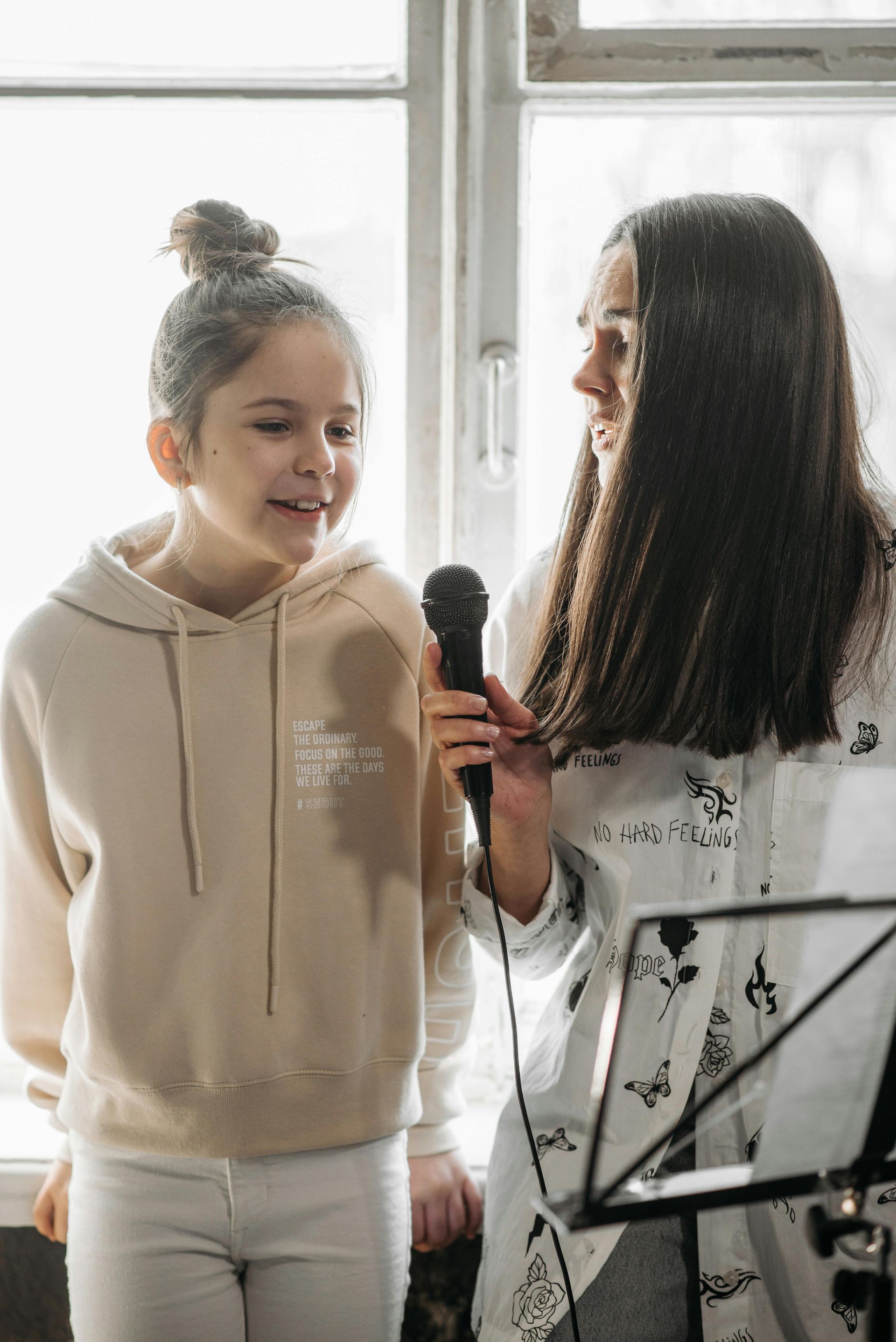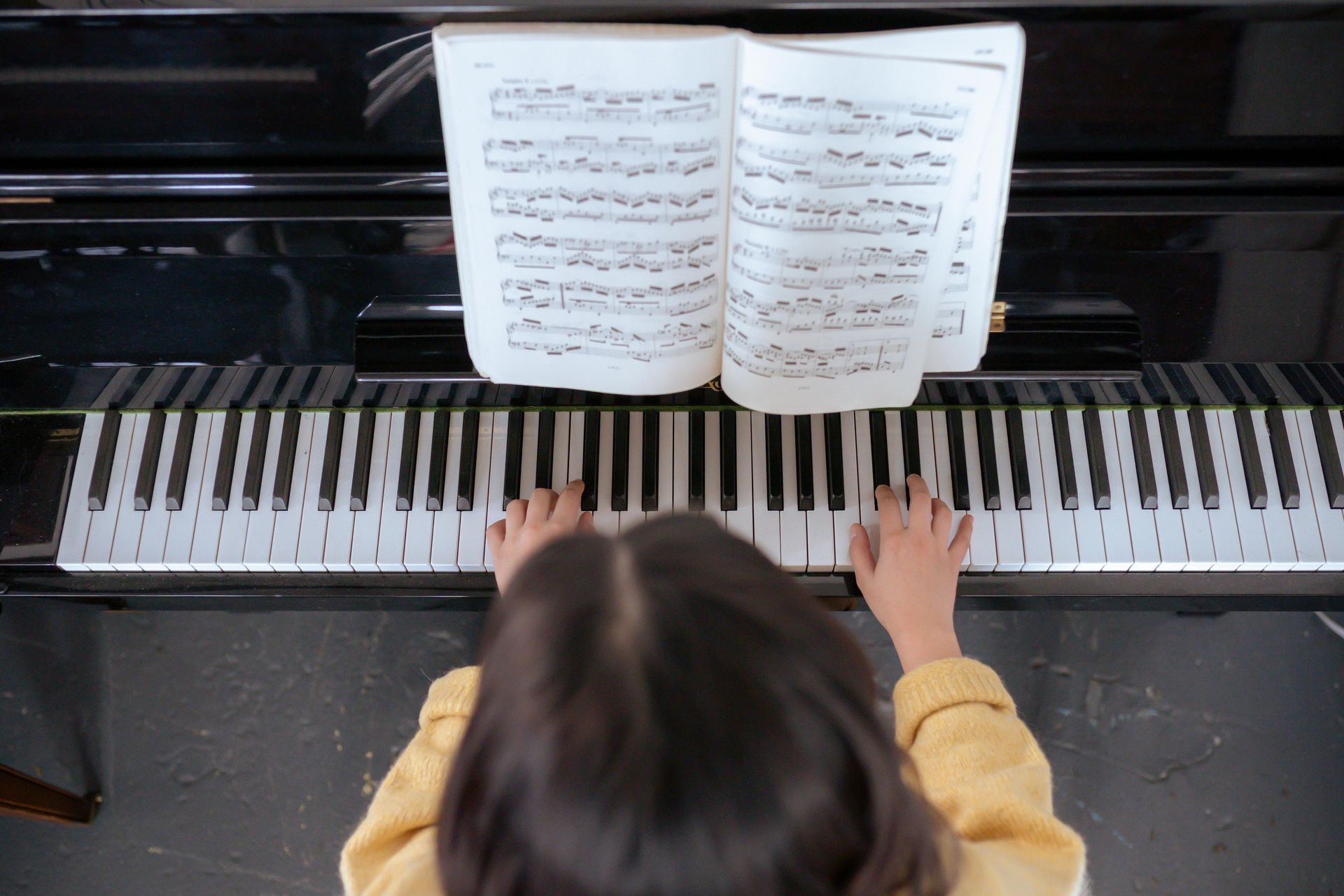Establishing Effective Practice Routines At Home
At Musical Living Academy (MLA), we believe that music practice at home is more than just repetition—it’s an opportunity to build confidence, spark joy, and create meaningful family connections. Establishing consistent and effective practice habits helps students "Engage the Mind 💡 Express the Heart ❤️," both in lessons and at home.
Whether your child is just beginning their musical journey or has been playing for years, these fun and practical strategies will help transform practice time into a rewarding part of your family's routine.
1. 🏡 Create a Special Practice Space
Set up a cozy corner dedicated to music!
- Choose a quiet spot with good lighting and minimal distractions.
- Keep essentials nearby—sheet music, a metronome, pencils, and a comfy chair.
- Add personal touches like inspiring posters or your child’s favorite music-themed decor.
A dedicated space signals to your child that practice time is important and special.✨
2. 🕒 Stick to a Consistent Schedule
Routine builds habits! Pick a time each day for practice that works with your family’s schedule—whether it’s before school, after homework, or before bed.
- ✅ Morning melodies to start the day?
- ✅ Afternoon practice to unwind after school?
- ✅ Evening tunes before bedtime?
Keeping practice times predictable makes it easier for your child to stay on track. 🎯
3. ⏳ Keep Sessions Short and Sweet
Long sessions can be overwhelming, especially for younger students. Try breaking practice into bite-sized chunks:
- 🕒 10-15 minutes for beginners
- 🕒 20-30 minutes for more advanced students
- 💧 Include short breaks to keep it fresh and fun!
Quality over quantity is key. Focused practice beats playing the same song over and over. 🙌
4. 🆕 Help Your Child Know What to Practice
For parents new to music lessons, knowing how to support practice can be confusing—but don’t worry! You don’t need musical experience to help your child stay on track. Here’s how:
- 📄 Use the Teacher’s Notes: Ask your child’s teacher to provide clear practice instructions. Review these notes together before each session.
- 🔊 Listen to Lesson Recordings: If your teacher provides recordings, play them during practice to help your child remember what to focus on.
- 📝 Check Off Completed Tasks: Create a simple checklist like “Warm-up, Song 1, Song 2.” Checking off items adds a sense of accomplishment. ✅
Your encouragement and interest mean the world—even just sitting with them and listening can boost their motivation! 💖
5. 💬 Use Simple Encouragement Instead of Corrections
It’s natural to want to correct mistakes, but children respond better to positive support—especially if you’re not familiar with the music. Here’s what you can do:
- 🎉 Say things like, “I love how you’re sticking with it!” or “That sounded even better than yesterday!”
- 👏 Celebrate effort over perfection. Comments like “I can tell you’re working hard” build confidence.
- 🙌 If your child gets frustrated, remind them, “It’s okay to make mistakes—that’s how you learn!”
Positive words go a long way in keeping practice sessions uplifting and encouraging. 🌟
6. 🐢 Slow Down to Speed Up
Sometimes slower is better! Practicing at a snail’s pace can:
- Help catch mistakes before they become habits.
- Improve hand coordination and muscle memory.
- Make tricky sections feel less intimidating. 😌
"Slow is smooth, and smooth is fast!" 🎹🐢
7. 🌟 Celebrate Progress (Big or Small!)
Cheer your child on! Positive reinforcement goes a long way:
- Use a sticker chart or practice calendar. 📅⭐
- Give high-fives or shout "Bravo!" after a good session. 🙌
- Record their playing and show how far they’ve come. 🎥🎶
Progress isn’t just about perfection—it’s about growth. 🌱❤️
8. 👂 Be Present Without Hovering
Your support matters! Try these ways to be involved:
- Sit and listen for a few minutes of each practice session. 👂
- Ask, "What part are you most proud of today?"
- Request a mini-concert after dinner. 🎶🍽️
Encourage them, but avoid turning practice into a pressure-filled chore. Patience and positivity make all the difference! 💖
9. 📅 Make Practice Part of Daily Life
Integrate music into everyday activities:
- 🎵 Sing or hum along with your child’s songs while cooking dinner.
- 🧹 Turn chores into rhythm games (sweep to the beat!).
- 🚗 Play your child’s practice pieces during car rides.
When music becomes a natural part of your routine, practice feels less like work and more like play. 🎶💃
10. 🎤 Connect Practice to Performances
Having something to look forward to keeps motivation high!
- Host a family concert in the living room. 🏠🎶
- Record performances to share with relatives or watch later.
- Look forward to MLA’s recitals to celebrate their hard work! 🎹✨
Knowing there’s a special event coming up can inspire consistent practice. 🎉
🎶 Discover the Joy of Practice Together at MLA!
Building an effective practice routine at home doesn’t have to be a struggle—it can be a joyful experience that brings your family closer. With a bit of structure, creativity, and encouragement, your child can develop lifelong musical habits that "Engage the Mind 💡 Express the Heart ❤️."
Interested in more ways to support your child’s musical journey? Contact us at (956) 867-0649—we’re here to help make music a fun and enriching part of your home life! 🎹🥁🎸
#McAllen #MusicIsLife #EngageTheMindExpressTheHeart







